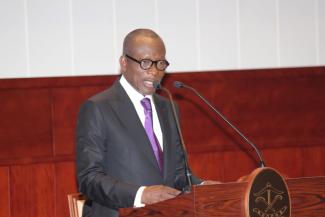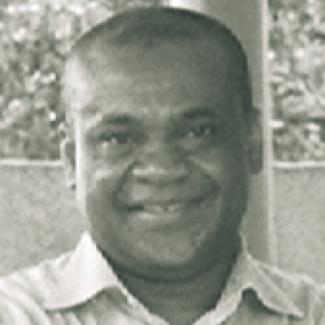Governance
Restricted freedom

Authorities in Cotonou are getting tough on foreign diplomats who dare to cross their “red lines”. In a press briefing a couple of weeks ago, Alain Orunla, the government spokesperson, said that officers like Nette must demonstrate courtesy towards the host country. He argued that African diplomats do so in western countries and added: “We expect the same attitude from the European Union ambassador.”
Orunla pointed out that, upon arrival in Benin two years ago, Nette stated that political activism would top his priority list, and insisted that the EU envoy had “even meddled in activities that we consider to be subversive”. At the same time, the spokesperson pointed out that Benin was interested in good relations and cooperation with the EU, so it was hoped that the EU would soon send a new diplomat to head its mission in Benin.
There was public outcry in Benin. People wanted to know what exactly Nette had done wrong. The public is aware of the EU being one of Benin’s major foreign donors – which matters, because the country largely depends on official development assistance. Issues of governance, moreover, are of great relevance in the aid context.
Following the public discontent, Aurélien Agbénonci, the minister of foreign affairs and cooperation, tried to water down his government’s harsh rhetoric. He spoke of “withdrawal of accreditation” rather than summary expulsion. But for many Beninese, this game of semantics doesn’t hold water.
The political context matters too. The country is in a profound crisis since parliamentary elections from which opposition parties were excluded in April. Amnesty International points out that the authorities restrict the rights to freedom of expression and peaceful assembly. The general impression is that the rule of law is weakening.
The obvious truth is that Oliver Nette, during his brief mission to Benin, held regular meetings with members of civil-society organisations, opposition parties, media professionals, opinion and religious leaders. In compliance with international norms of governance, he believed that these entities should play an important role in a young democracy like Benin. According to reliable sources, Nette was outspoken about the problematic elections of April (see my essay in Tribune section of D+C/E+Z e-Paper 2019/07). Such statements made behind closed doors were probably very much in line with what members of Benin’s opposition say. In their eyes, the current National Assembly lacks legitimacy, so they demand a re-run of the parliamentary election.
It seems likely that the government felt uncomfortable with Nette witnessing the gradual decline of Benin’s democracy. Today, all 83 members of parliament are fully beholden to President Talon. A few weeks ago, they unanimously amended the constitution in just 24 hours, without consulting the public at all. Among other things, terms limits were introduced for members of parliament, and the position of a vice-president was created. However, the changes did nothing to address the grievances of the opposition. Some groups now want to mobilise support internationally and hope foreign governments will put pressure on the Talon administration. If stringent sanctions were imposed, they believe, the political situation might improve.
Not everyone appreciates this strategy, however. Benin is a low-income country that needs to roll back widespread poverty, and sanctions are likely to cause additional hardship. Those currently in power, of course, see things in yet a different light. They speak of “a desperate attempt to bring down the government” and “betrayal of the fatherland”. Such talk, needless to say, is merely empty populist rhetoric to opposition leaders.
Karim Okanla is a media scholar and freelance author.
karimokanla@yahoo.com







